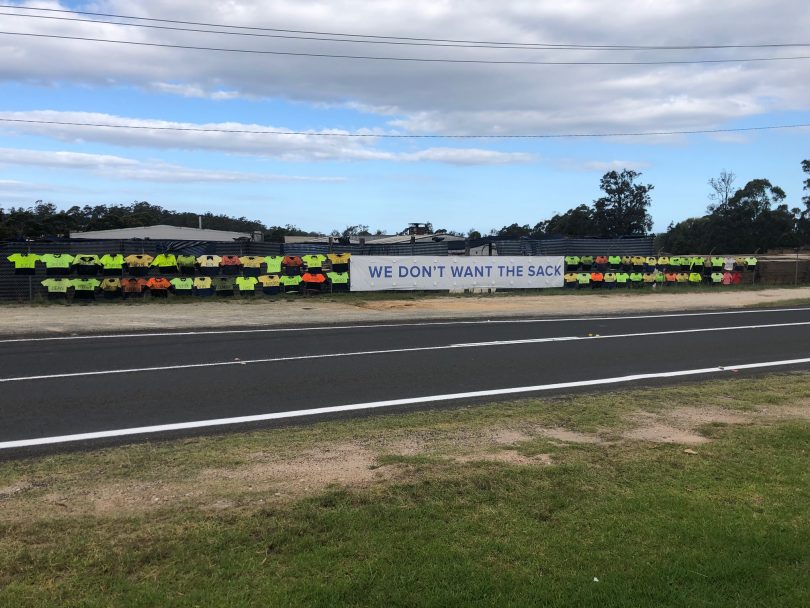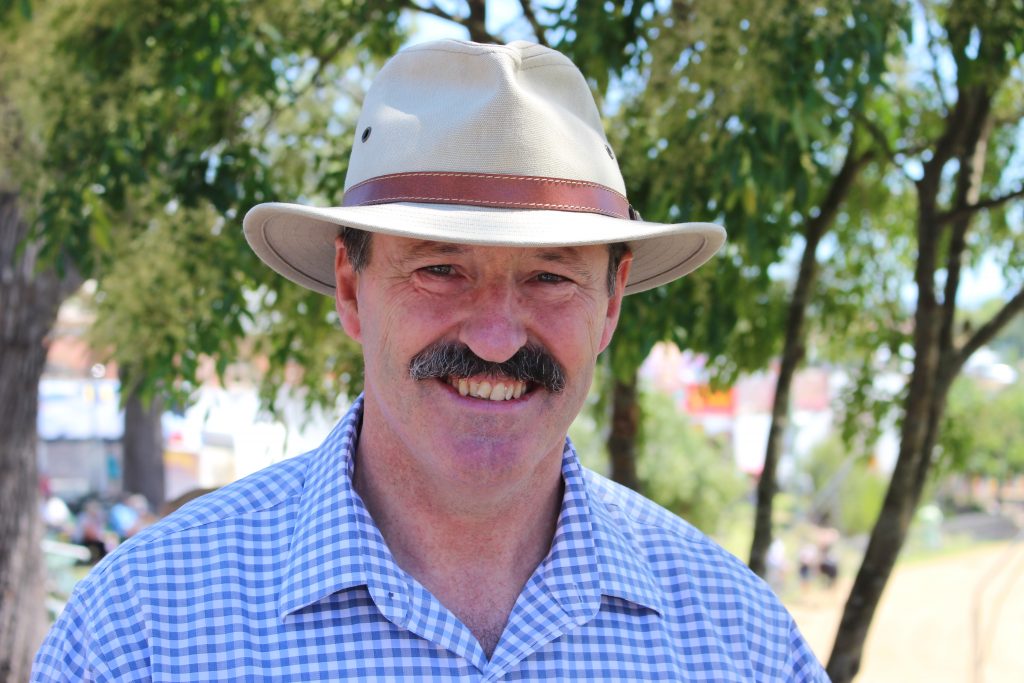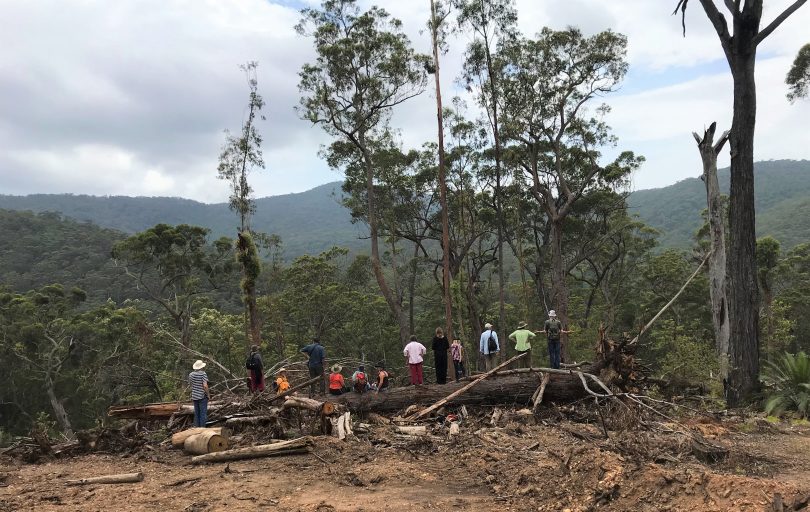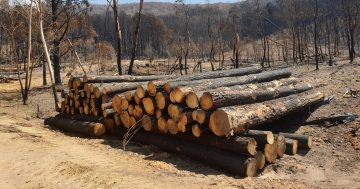
The shirts of 56 works that line the fence at Blue Ridge Hardwoods in the Princess Highway in Eden. Photo: Ian Campbell.
In the wake of potential job losses at Eden’s Blue Ridge Hardwoods and ongoing concern with native forestry, the Member for Eden-Monaro is suggesting a shake-up of the timber industry.
“Our native forests could very well potentially hold more value as carbon sinks and in ecotourism, perhaps alongside some selective sustainable logging activity,” Mike Kelly says.
Speaking with Region Media, Dr Kelly made the comments in connection with questions about the current harvesting operation underway near the historic Corn Trail in the Monga National Park near Buckenbowra State Forest.
“Labor is keen to pursue the establishment of a Timber Hub for the region which would include funding to establish a timber co-op that engages local farmers to assign portions of their property to plantation development, this would help them diversify their income,” Dr Kelly says.
“The potential for plantation development in this area could result in resource security and expansion for our timber enterprises.
“I have recently discovered that the Eden Chipmill is currently down to about 10% plantation resource.
“The AFPA (Australian Forest Products Association) has estimated that there is potentially 250,000 ha of land in our region suitable for plantation development but this would have to be balanced against efficient food production.
“An aspect of this will be that the timber industry will have new factors to take into consideration as to what is the most profitable use of our timber resource. With a changing market, business models may be revised driven by where the value add is greatest.”

Dr Mike Kelly, Member for Eden Monaro. Photo: Ian Campbell.
Dr Kelly believes Labor’s carbon farming plan and forestry policy will be key in driving the investment in native plantation needed to create the change he points to.
“Federal Labor is working with the forestry industry on policies to drive investment in the plantation estate, particularly by removing barriers that are currently preventing plantations from participating in the carbon market,” he says.
“Labor wants to see plantations play a greater role in climate change mitigation, and if we can achieve resource security for our mills at the same time then that’s a win-win.”
Dr Kelly’s ambitions set forestry up to be a Federal Election issue, a point highlighted by the recent Forest Embassy protest on the lawns at Parliament House.
While those who gathered in Canberra last month were calling for an end to native logging in general, the current harvesting operation in Buckenbowra State Forest near Braidwood was a focus.
The Friends of Mongarlowe River are supportive of Dr Kelly’s plan and took part in the Canberra Forest Embassy.
They are calling on Forestry Corporation to stop logging in Buckenbowra but in particular compartment 517, which is immediately above the Corn Trail – which was originally used by Aboriginal people and then early European settlers, whose corn was transported by pack-horse up to Araluen and Braidwood.
“Two Greater Gliders have been seen in a tree hollow in this compartment,” according to FMR.
“In an alarming development, we now also understand that the required pre-logging surveys were not compliant!
“This means these animals and this forest generally is being illegally placed at risk of imminent danger.
“FMR has written to the Environment Protection Authority demanding immediate stop work orders.”

Walkers survey the logged forest next to the Corn Trail. Photo Alex Rea
A Forestry Corporation spokesperson told Region Media, “There are robust protection measures that have been developed by expert ecologists and scientists to protect native wildlife, including greater gliders, during forestry operations. Forestry Corporation continues to operate in line with these strict regulations.”
Meantime 60 timber workers at Blue Ridge Hardwoods in Eden are facing an uncertain future, with no job guarantees beyond December 31.
Blue Ridge has missed out on a new wood supply agreement with Forestry Corporation, instead, Allied Natural Wood Exports (ANWE) who operate the Eden Woodchip Mill will develop a new timber $20 million timber processing plant on Edrom Road on the southern shores of Twofold Bay.
Foresty says a changing timber resource is one of the reasons ANWE won out.
They say that regrowth that has emerged from wildfires in the 1980’s is smaller and more uniform in diameter, different to the large mixed-size trees harvested from forests over the last 20 years, the logs Blue Ridge has processed.
“New equipment is needed to process this new resource,” Forestry says.
“ANWE presented an option which was judged to have better outcomes.”
Conservationists claim the change to smaller trees points to overharvesting and poor forest management.
Jobs and the environment are always a potent mix, one that has brought people and communities into conflict across Southern NSW for decades.
Is Mike Kelly’s plan one that has the potential to end that tension? Feels like greenhouse gases are driving more than just climate change.
Region Media has approached the Liberal and Greens candidate for Eden-Monaro for comment.




